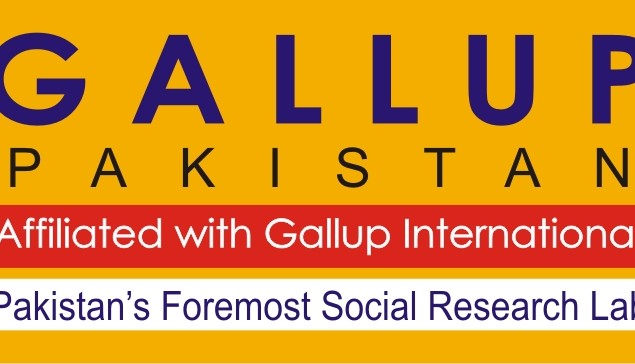
LAHORE: Prime Minister Imran Khan-led Pakistan Tehreek-e-Insaf (PTI) government emerged victorious in July 25 Azad Jammu and Kashmir (AJK) elections as predicted by Gallup Pakistan’s survey, which was released just five days ahead of the polls.
The Gallup survey — Social and Political Pulse of Azad Jammu Kashmir – released on July 20th, showed that 44 per cent respondents thought that the ruling PTI would win the AJK polls as against 12 per cent who betted on Pakistan Muslim League-Nawaz (PML-N) and nine per cent on the Pakistan People’s Party (PPP).
In terms of popularity, Imran Khan remained head and shoulder above his rivals with 68 per cent of respondents saying that they had a positive image of the premier. Bilawal Bhutto-Zardari was lagging behind at 49 per cent, Shahbaz at 48 per cent, Nawaz Sharif at 47 per cent and Maryam Nawaz at a distant 45 per cent.
The AJK’s unofficial and preliminary results were by-and-large in line with the Gallup Survey which itself keeps an error margin of minus or plus two to three per cent. Out of 45 AJK Legislative Assembly’s general seats, the PTI bagged 25 seats, followed by PPP’s 11 and PML-N’s six seats. The All Jammu and Kashmir Muslim Conference (AJKMC) and Jammu and Kashmir People’s Party (JKPP) won one seat each, while the results from one constituency are still awaited.
These results were in line with the expectations of many political analysts and pundits because historically any party ruling at the center also manages to win elections in AJK and Gilgit-Baltistan. The same was predicted by Gallup Pakistan.
However, Gallup survey results gave a morale booster to the PTI and its supporters in their AJK election campaign. This raised many questions, including whether the survey was Gallup Pakistan’s own initiative or carried out on behalf of a client.
Gallup Pakistan’s Executive Director Bilal I Gilani said that the survey was not a sponsored exercise. “It is an entirely non-funded activity and not done in partnership…. It is Gallup’s own initiative,” he told Bol News.
Answering a question, Gilani said that it’s a valid question that why a corporate organisation, which works for profit, Gallup did this survey at its own expense.
“There are two aspects to this. Firstly, we want people do decision-making in Pakistan based on empirical evidence.”
Second, the more people join this polling system, it will benefit not only Gallup Pakistan, but the country, in general, as any decision-making processes that have no evidence-based data systems remain unsuccessful in the long run, he added.
Gallup Pakistan conducts such surveys to increase the user-base of empirically advanced strategic systems, Gilani said.
Gilani did not disclose the cost of the survey, but the market sources say that this entire one-time exercise costs around 2.0 to 2.5 million rupees.
Gallup Pakistan, which is not connected to the Gallup US, initiated the first private sector survey and opinion polling in the country in 1979. Now it is seen in the business of surveys and polls as a major player.
“Such exercises are not only beneficial for the industry, but for the people of the country, as well,” Gilani said while explaining why his organisation invested in doing the survey on its own.
The total pie, if expanded, in the long run, will benefit the entire research market, he said.
“We are introducing this platform in the country to make sure that [the] decision-making is carried out according to [the] international polling standards. Moreover, this advanced strategic system could be utilised in various surveys, including those in politics and several other grounds.”
Read More News On
Catch all the Pakistan News, Breaking News Event and Latest News Updates on The BOL News
Download The BOL News App to get the Daily News Update & Follow us on Google News.




